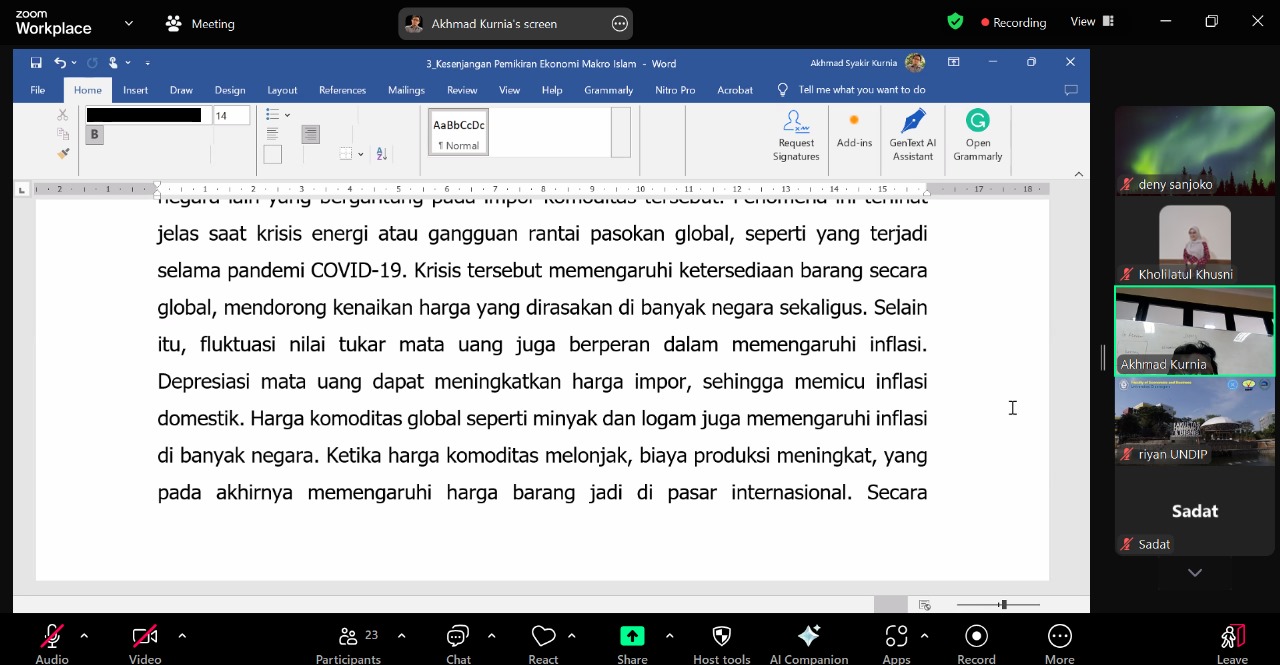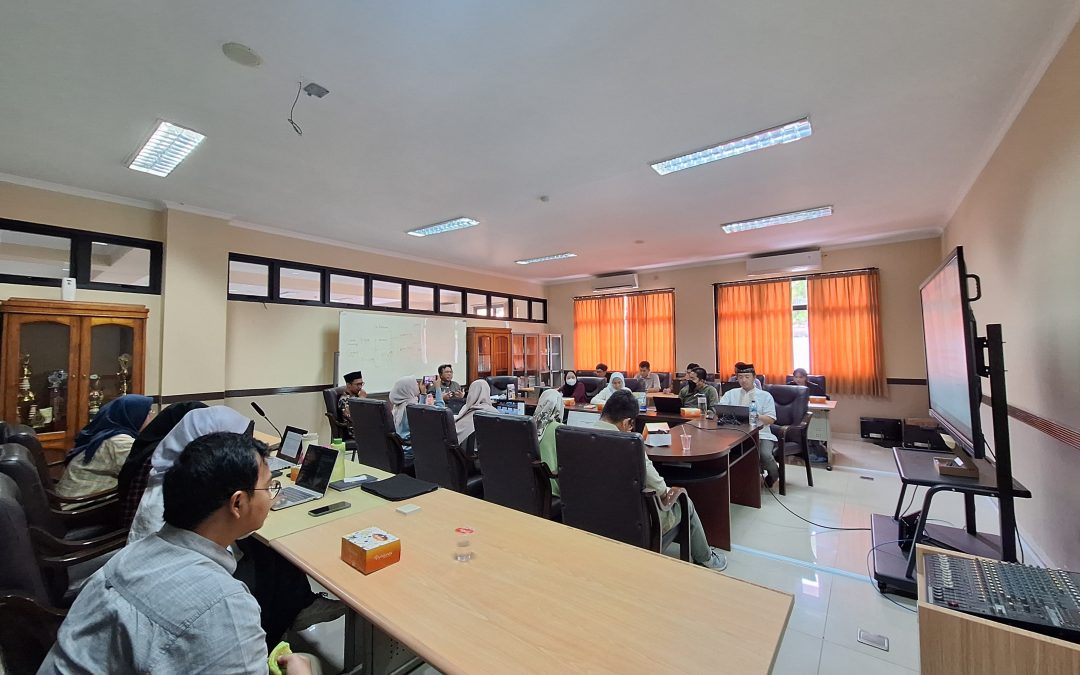Semarang, February 21, 2025 – The Department of Economics and Development Studies at Diponegoro University (Undip) conducted a turbulence study themed “The Gap in Islamic Macro Thought: Taklif and Macro Aggregate Behavior.” This event was held both in-person at the Meeting Room of Building C, Undip Economics Study Program, and online via the Zoom platform, facilitating participation from academics and students alike.
During the event, Prof. Akhmad Syakir Kurnia, S.E., M.Sc., Ph.D., served as the main speaker, elucidating the evolution of macroeconomic thought from an Islamic perspective. His presentation focused on the interplay between the concept of taklif (legal obligation) in Islam and macroeconomic aggregate behavior. Central questions addressed in this study included whether macroeconomic phenomena arise from the accumulation of individual micro-level behaviors and how adherence to taklif may reflect broader patterns of macroeconomic behavior.
The study further explored the progression of macroeconomic theory, beginning with classical theories that posit a linear relationship between micro and macroeconomics, and extending to Keynesian theories that assert macro phenomena do not always manifest in micro behaviors, particularly in the aftermath of the Great Depression. Over time, contemporary theories, such as Daron Acemoglu’s Modern Growth Theory, have also examined factors influencing long-term economic growth, including innovation, institutional policies, and investments in human resources and technology.

A significant highlight of this study was the discussion surrounding the development of Islamic macroeconomic thought, which not only critiques conventional economic theories but also integrates Islamic principles. Notable figures in this discourse include Naquib al-Attas, who underscores the importance of moral values in scientific inquiry, and Ismail al-Faruqi, who advocates for a synthesis between modern economics and Islamic principles to establish a more equitable and holistic economic system.
Additionally, this study references Akram Khan’s work, Methodology of Islamic Economics: From Islamic Teachings to Islamic Economics, which addresses the methodologies involved in developing Islamic economics. Khan emphasizes the necessity of an approach grounded in Islamic teachings, particularly in the formulation of economic concepts that align with Islamic moral and ethical values. He also highlights the importance of Islamizing economic knowledge to create a theoretical framework that is not only relevant in economic contexts but also adheres to the principles of social justice as taught in the Qur’an and Sunnah.
Moreover, this study accentuates the significance of Islamic economic thought in providing solutions to the challenges faced by Muslims, particularly in addressing the historical lag in the development of economic science since the 12th century. Consequently, the study advocates for the establishment of an economic system that prioritizes not only economic growth but also social equity, fair distribution, and sustainability within a global context.
In conclusion, this study encourages participants to contemplate the construction of an Islamic economy that is not merely reactive to global changes but also embodies a more idealistic vision, emphasizing justice, universal welfare, and contributions to human civilization through the advancement of Islamic macroeconomic thought rooted in authentic Islamic values.
Author:
Turbulence Study Committee
Department of Economics and Development Studies
Universitas Diponegoro


